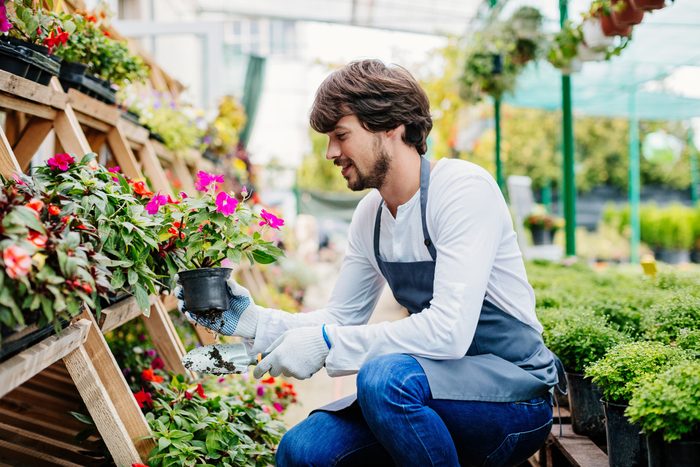Growing Eco-friendly Thumbs: a Novice's Journey Into the World of Horticulture
Are you anxious to obtain your hands filthy and begin expanding your own garden? Look no additional! In this post, we'll take you on a novice's journey into the world of gardening. You'll learn about choosing the right plants, understanding dirt and garden compost, and crucial horticulture devices. We'll additionally show you watering and fertilizing techniques and how to manage usual yard bugs. Prepare yourself to cultivate your environment-friendly thumb and see your yard grow!
Choosing the Right Plant Kingdoms
You require to assess your gardening room and determine the number of plants that will fit pleasantly. Step the measurements of your yard beds or pots and calculate the offered room. Consider the mature size of the plants you plan to grow.
Once you have a clear idea of your horticulture room, it's time to pick the right plants. Specific plants prosper in complete sunlight, while others like partial color. This will assist you choose plants that are fit to your particular problems.
It's also necessary to consider your level of gardening experience. Decide for plants that are easy to expand and need very little maintenance if you're new to horticulture. Natural herbs like basil, rosemary, and mint are perfect and forgiving for newbies. Furthermore, think about the length of your expanding period. If you live in a region with a much shorter growing season., pick plants that have a shorter maturity duration.
Recognizing Soil and Garden Compost
Soil is the structure of your garden, giving nutrients, water retention, and support for your plants. It is essential to have a great understanding of your dirt kind, whether it is sandy, clayey, or fertile, as this will certainly determine the types of plants that will prosper in your yard. Keep in mind, a healthy and balanced and abundant dirt is the key to a successful garden, so take the time to comprehend your dirt and integrate garden compost to guarantee your plants prosper.

Vital Gardening Devices
Now that you comprehend the importance of dirt and compost, let's explore the necessary gardening tools you'll require to cultivate your eco-friendly sanctuary. One of one of the most standard tools you'll need is a yard trowel. This tiny handheld device is ideal for excavating little holes, hair transplanting plants, and scooping dirt. One more crucial tool is a garden fork. This durable tool is utilized for loosening dirt, separating globs, and transforming garden compost. A great set of gardening handwear covers is an essential to protect your hands from thorns, prickly plants, and dust. Search for handwear covers that are long lasting, breathable, and give a great grasp. A yard pipe or watering can is essential for maintaining your plants moistened. Pick a pipe with a spray nozzle that enables you to adjust the water circulation and stress. A sturdy set of pruning shears or secateurs is important for cutting and forming your plants. Look for shears with a sharp blade and comfortable deals with. Lastly, a yard rake works for leveling dirt, removing debris, and spreading compost. With these crucial devices in your horticulture arsenal, you'll be fully equipped to produce and maintain your eco-friendly sanctuary.
Watering and Fertilizing Methods

Dealing With Common Yard Pests
As a beginner gardener, you may experience typical yard bugs that can damage your plants. These bugs can vary from insects like beetles, caterpillars, and aphids, to small animals like squirrels and rabbits. It is essential to be able to determine and deal with these pests effectively in order to secure your plants and guarantee a successful garden.
One of the primary steps in dealing with yard parasites is to frequently evaluate your plants for any indicators of problem. Try to find chewed fallen leaves, openings in the vegetation, or the visibility of little bugs. If you identify any kind of pests, it is essential to do something about it quickly to avoid them from spreading out and creating additional damage.
There are several approaches you can utilize to manage yard parasites. One option is to use natural predators, such as ladybugs or hoping mantises, to assist control the population of bugs. You can likewise use physical barriers, such as fences or netting, to maintain bigger animals like rabbits out of your yard. In addition, there are organic parasite control sprays available that can assist prevent and remove typical yard insects.
Keep in mind, avoidance is crucial when it concerns handling yard parasites. Keeping your yard tidy and cost-free of particles can home gardening for beginners help in reducing the probability of an infestation. Consistently removing weeds and dead plants can likewise help get rid of hiding areas for insects.
Verdict
Congratulations on completing your newbie's trip into the world of horticulture! By choosing the right plants, recognizing dirt and garden compost, utilizing vital gardening devices, and mastering watering and feeding strategies, you have actually established on your own up for success. Don't forget to stay alert in dealing with typical yard pests to ensure your plants flourish. With your newfound expertise and eco-friendly thumbs, your yard will certainly thrive and bring you countless pleasure and appeal (gardening kit for beginners). Satisfied horticulture!
Dirt is the structure of your garden, offering nutrients, water retention, and support for your plants. It is essential to have a good understanding of your dirt kind, whether it is sandy, clayey, or fertile, as this will certainly figure out the kinds of plants that will certainly grow in your yard. Remember, a healthy and abundant dirt is the key to a successful yard, so take the time to recognize your soil and integrate compost to ensure your plants flourish.
As a newbie gardener, you might come across usual garden pests that can wreak chaos on your plants. It's crucial to be able to recognize and deal with these pests properly in order to safeguard your plants and make sure a successful garden.